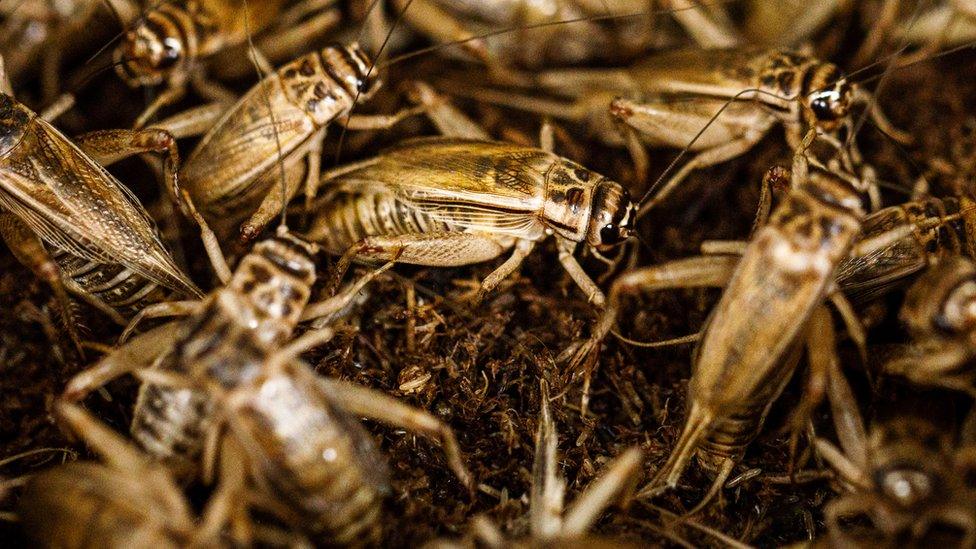How is this rare white giraffe being protected?
- Published
- comments
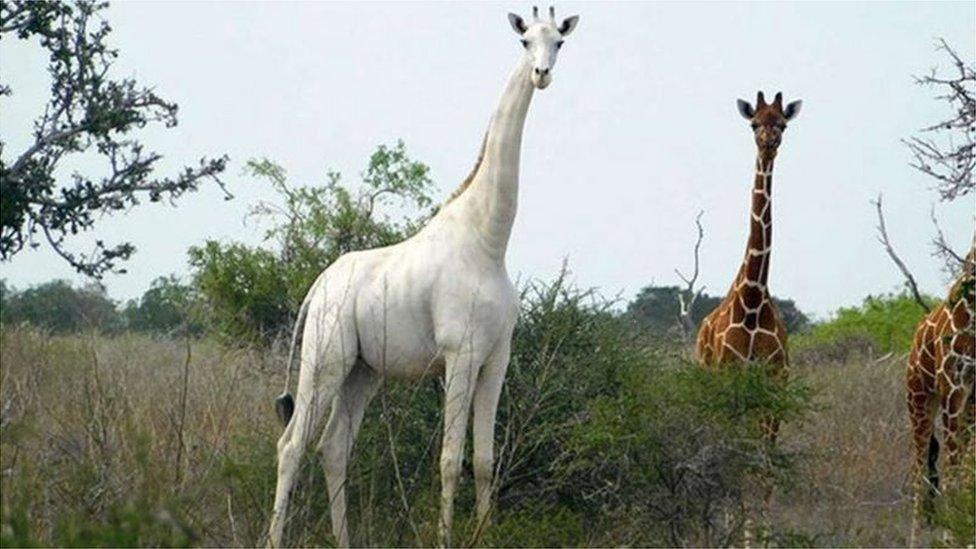
The giraffe has a rare genetic disorder called leucism which causes its skin to appear white
This white giraffe is thought to be the world's only one of its kind and rangers have fitted a tracking device to protect it from poachers.
The white giraffe, who lives in East Kenya, has a rare genetic condition called leucism which causes a loss of skin pigmentation. In simpler terms, the giraffe's skin can't create any colour, so it appears white!
White giraffes are very rare, and they were first spotted in Kenya in March 2016.
The fact that this giraffe is so rare means that poachers are especially attracted to it. In March 2020, two other white giraffes, thought to be family members, were killed by poachers.
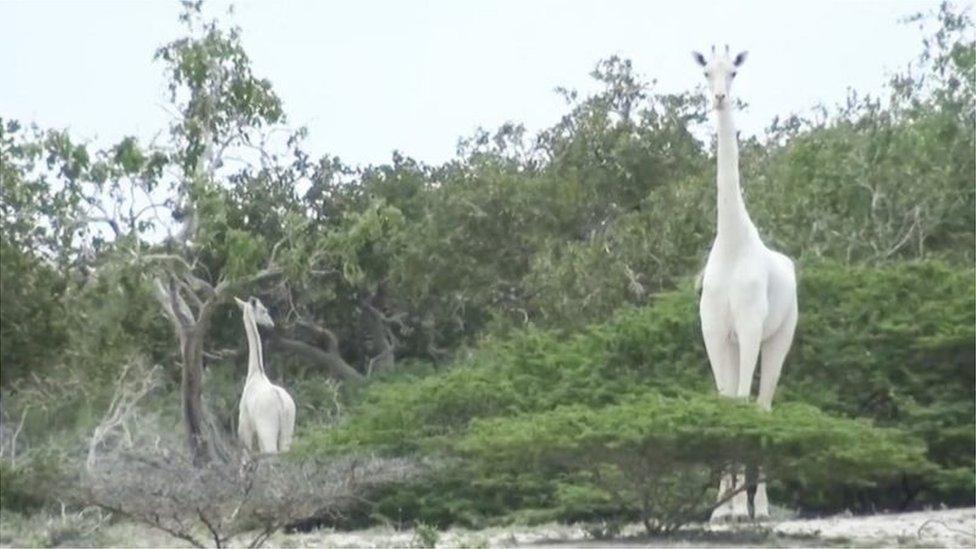
The two other white giraffes that were spotted back in March 2020
How can the tracker help?
To try and stop this from happening again, rangers from the Ishaqbini Hirola Community Conservancy have fitted a tracker to one of the giraffe's horns which allows the them to track its movements.
The tracker will give hourly updates on the giraffe's location and will be a huge help in protecting the rare animal from poachers.
The Kenya Wildlife Society, which is the main conservation group in the area, said it was happy to help protect "unique wildlife like the only known white giraffe".
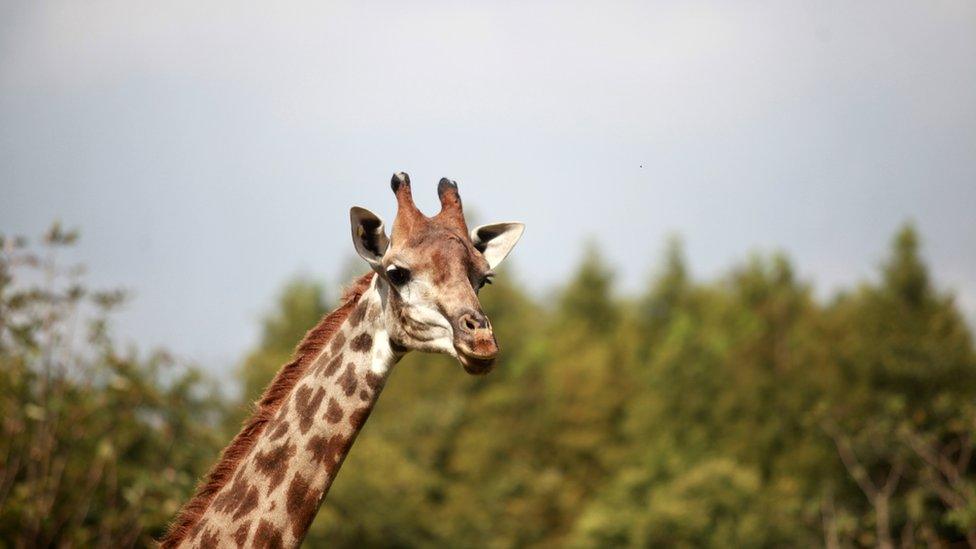
It's not only white giraffes at risk of poaching
What is a poacher?
An animal poacher is someone who illegally hunts and kills animals in the wild. You can read Newsround's guide to poaching here.
40% of the giraffe population has been lost over the last 30 years. It is thought that poaching and animal trafficking are huge contributors.
Giraffes have been placed on the vulnerable species list, with an estimated 68,293 of them around the world.
- Published10 September 2016
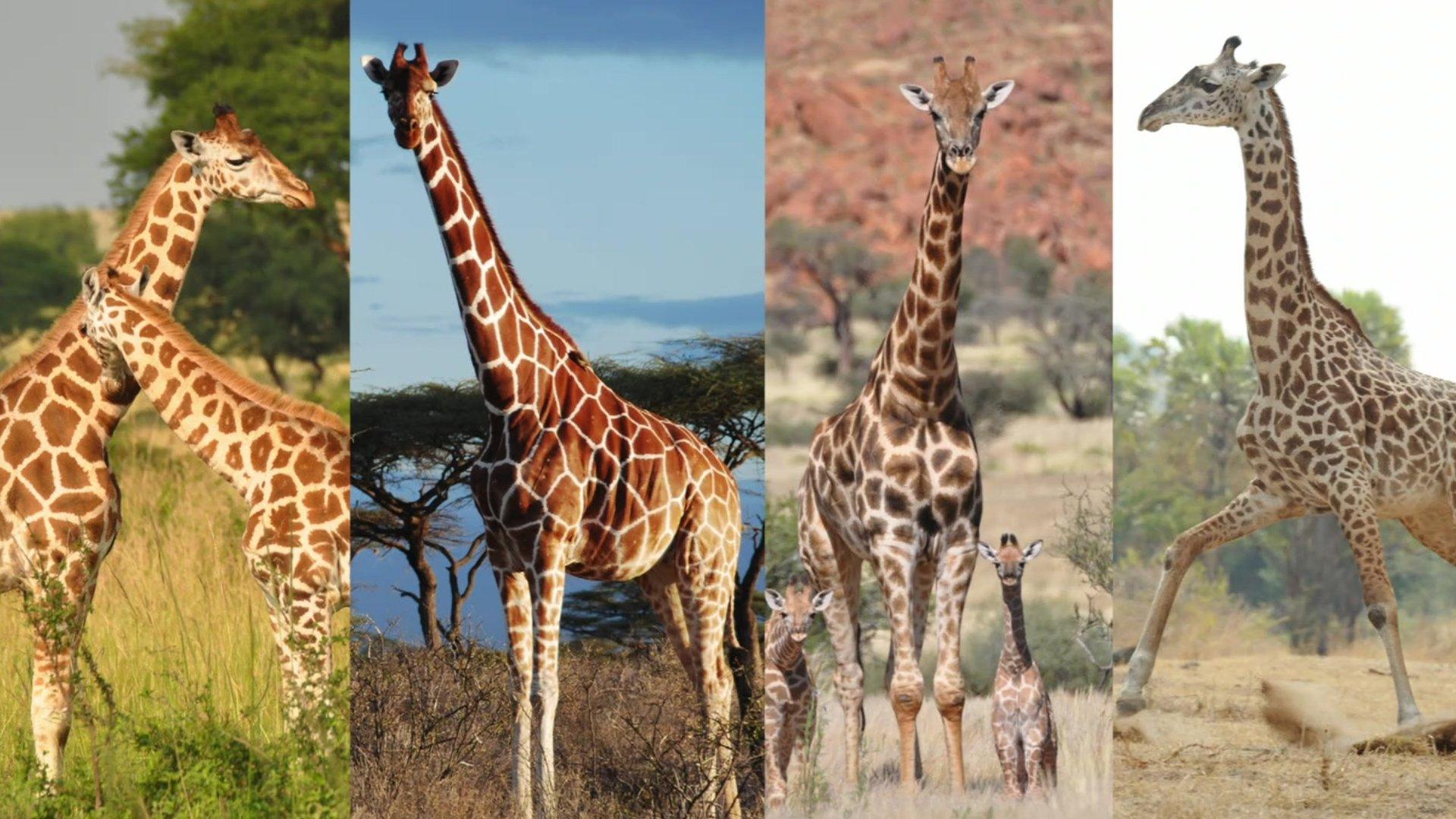
- Published18 November 2021

- Published18 November 2020
